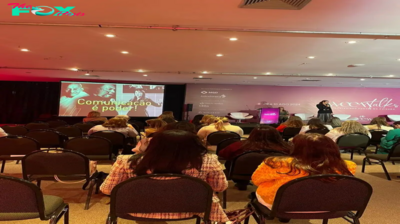Entertainment
Geoffrey Newman in dialog with conductor Leonard Slatkin – Seen and Heard Worldwide
Distinguished American conductor Leonard Slatkin talks to Geoffrey Newman
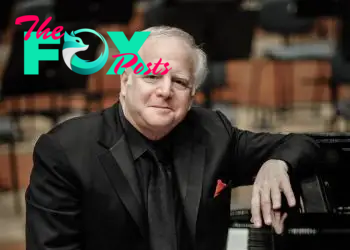
Leonard Slatkin has been a power within the American classical music scene for nearly fifty years and can have a good time his eightieth birthday in 2024. Born right into a distinguished musical household and skilled at Aspen and Juilliard, Slatkin has been Music Director of the St. Louis Symphony (1979-1996), the Nationwide Symphony Orchestra of Washington (1996-2008), the BBC Symphony (2000-2004), the Detroit Symphony (2008-2018) and Orchestre Nationwide de Lyon (2011-2017). He has served as Principal Visitor Conductor for quite a lot of English and American orchestras and holds honorary emeritus positions with the St. Louis, Detroit and Lyon orchestras. His recordings for Vox, Telarc, EMI, RCA and Naxos quantity within the tons of, and he has gained six Grammy awards with 35 nominations. All his Sony/RCA recordings will likely be re-issued this 12 months as a part of the birthday celebrations.
Slatkin has made a powerful contribution to perPetuating American music and is likely one of the few American conductors to light up British music. This interview traces his growth from his wealthy musical beginnings by successive orchestral appointments and recording ventures. It reveals his evaluation of key moments within the growth of American classical music, and the elements important to holding classical music wholesome. The interview was undertaken to have a good time Slatkin’s first look with the Vancouver Symphony Orchestra, the place he gave a distinguished live performance of Richard Strauss and Mason Bates (evaluate click on right here).
Geoffrey Newman: You come from an illustrious musical household: your mother and father, Felix Slatkin and Eleanor Aller, have been founding members of the legendary Hollywood String Quartet, and each have footprints on this planet of in style music. I’ve heard that you just had an incredible number of well-known musicians and composers go to your Los Angeles house if you have been younger.
Leonard Slatkin: Sure, along with the string quartet, my father was concertmaster of the twentieth Century Fox Orchestra and my mom was Principal Cello at Warner Brothers. Capitol Data was the linking power – it recorded the Hollywood Quartet in classical repertoire alongside movie scores and most of the most well-known in style music stars. We have been at all times entertaining artists from this label who would come over to organize for recordings: Stravinsky and Schoenberg, and the good movie composers Korngold and Max Steiner. On the favored aspect, Nat King Cole, George Shearing and, particularly, Frank Sinatra, grew to become shut with my mother and father. Sinatra usually selected my father to be first chair of the orchestra in his recordings, and he recorded just a few albums with the quartet alone. I additionally keep in mind the good Artwork Tatum at our house, working lengthy hours. So, I grew up with all this music and artistry round me. In fact, I used to be only a child, absorbing issues I couldn’t perceive, attempting to soak up it anyway. However I actually got here away with the concept that there have been no boundaries in music!
GN: How did this result in an curiosity in conducting?
LS: I really slanted extra in direction of jazz once I was younger. Regularly I took up violin, then piano, then composition and, lastly, conducting. However the conducting actually didn’t occur till after my father handed away at 47 in 1963. That type of modified my life. I used to be then 19. One issue is that we have been a really aggressive family. I knew I might not be a violinist as a result of my father was too good. I knew I wouldn’t be a cellist as a result of my mom and brother Fred have been too good. And I knew I might not be nearly as good a pianist as my uncle Victor [Aller]. Maybe conducting does come again to my father, since on the time of his passing he had began a profitable profession as a conductor and made many well-received in style music recordings with each the Hollywood Bowl Orchestra and the pickup Live performance Arts Orchestra.
In any case, I ultimately noticed conducting as one thing I may be ok with doing, and so I spent 4 years learning on the Aspen Music Faculty mentored by Walter Susskind, after which at Juilliard below Jean Morel. In my final 12 months, Susskind invited me to hitch him as assistant conductor when he grew to become Music Director of the St. Louis Symphony. That was in 1968.
GN: Your tenure with the St. Louis Symphony was an extended one, and also you elevated the efficiency requirements and profile of the ensemble dramatically as quickly as you took over as Principal Conductor in 1979. How would you clarify this?
LS: My affiliation was 27 years complete and, because it seems, I used to be one of many few conductors to ever transfer from Assistant Conductor to Principal Conductor of the identical orchestra. An enormous consider our success was that I used to be blessed with a brand new government director and creative administrator, two individuals I assumed have been excellent and I may transfer ahead with. We set out a five-year plan. We stated right here is the place we’re at this time, and right here is the place we need to be in 5 years, and that included with the ability to file, do some touring, construct the viewers at house and work on the endowment. And each time we completed one aim, we merely added one other one.
There have been already loads of high quality gamers within the orchestra, and we made new appointments, however the huge factor was we had assembled an all-star wind part, which most likely was the best of any orchestra in America. That was one of many nice pleasures of conducting the ensemble. I hardly ever needed to say something to those gamers: they simply knew what to do. On many nights, I felt the orchestra may play with the easiest. On the identical time, we have been the beneficiaries of a unprecedented interval for recording in america. It was loopy: we have been doing a complete of 5 or 6 discs a 12 months – for Vox, Telarc and EMI, then a large quantity for RCA later.
GN: The orchestra’s concentrate on American music was additionally distinctive. That will need to have been a key a part of the plan.
LS: Completely a central half! Again within the Nineteen Seventies, there have been nonetheless many music administrators and orchestras that made the Austro-Germanic repertoire the dominant core of their programming, and applications began to look fairly alike from orchestra to orchestra. We tried to place a further concentrate on each American and Russian music. I might say that our annual journeys to New York cemented the orchestra’s fame for brand spanking new music as a result of we might are available in with items that no one else was taking part in. Luckily, we performed to full homes and acquired a powerful reception from audiences in addition to the press. For instance, we’d play William Bolcom’s ‘Songs of Innocence and Expertise’ as a core a part of a live performance. Our appearances turned out as an journey, an ‘occasion’ for everybody.
GN: I keep in mind a lot of your early recordings with the orchestra. Of the EMI releases, certainly one of your most memorable was the Barber Concerto you probably did with violinist Elmar Oliveira, coupled with Hanson’s Second Symphony. I actually keep in mind the character of the wind taking part in, proper from a resolute little clarinet march within the opening motion.
LS: Sure, Oliveira was so good, and the clarinetist you discuss with was George Silfies. After which there was the oboe within the gradual motion – the story simply goes on. They have been all nice wind gamers, and other people would come from throughout to listen to them play or examine with them. For that EMI sequence, we did Gershwin, Copland and Bernstein discs as nicely. Then RCA got here into the image, and we did an enormous American sequence with them. This prolonged all the best way from Copland and Barber to Corigliano and Ives. That’s the place I used to be in a position to cement the concept we, together with Gerard Schwarz and the Seattle Symphony, have been the 2 orchestras actually dedicated to bringing historic American classical music to the general public.
GN: In assessing this historical past, we are able to determine the necessary American ‘tonal’ composers within the neo-romantic and neoclassical traditions from the Thirties to the 50s: Barber, Copland, Hanson, Harris, Diamond, Piston, Mennin and Schuman. Then now we have all of the variants of the atonal/minimalist custom, beginning within the Nineteen Fifties and persevering with in some type by Periods and Carter. But not lengthy after that, the dominating names grew to become Glass, Corigliano and Adams – and far of the earlier historical past is forgotten. The place do you suppose the large turning level was?
LS: For me, the work that triggered the change was David del Tredici’s Ultimate Alice, which premiered with the Chicago Symphony below Georg Solti in 1976. I didn’t know David’s music, however the government director stated you simply have to return as much as Chicago and listen to this piece. And I sat there: the work ran a full 60 minutes and was superb! Soprano Barbara Hendricks was unbelievable. On the finish, the viewers responded with an exquisite ovation. Normally, they don’t reply to modern items, however right here they have been cheering and doing every kind of stuff for a giant new piece of music.
I believe this was the revolutionary American composition of the 20th century for American music. In some ways, it’s a loopy, outlandish, almost-retro piece, but it stands as a completely particular person fashionable work that’s tonal in design, completely communicative and absolutely accessible for an viewers. Whereas del Tredici was a dedicated serialist to start, what he was basically saying with this work is: ‘Right here you go tutorial composers. Right here you go Roger Periods, Elliot Carter and firm. You might be out of the image now. We’ve got moved from atonal compositions again to tonal ones’. And all the opposite composers I’ve talked to – John Corigliano, Christopher Rouse, Steve Stucky – stated the identical factor: that David paved the best way for his or her music as a result of he confirmed that considerate, mental music may nonetheless attain an viewers on first listening to. I’ve championed David’s music because the first day I heard it, and I’ve carried out it many occasions in each St. Louis and Detroit.
GN: How would you assess the music of Leonard Bernstein on this growth?
LS: Bernstein had a person voice from his earliest days, at all times identifiable irrespective of how a lot he borrowed from Copland, jazz and different issues. I’ve at all times beloved performing him, and I don’t see a time when his music will exit of favour. On the identical time, I doubt that his musical fashion may invite others to comply with. It is just too private: what Bernstein was doing was basically writing his autobiography in music. You need to see all his ‘huge items’ this fashion. You’ll be able to’t separate his life from his music.
GN: Your subsequent appointments have been with the Nationwide Symphony in 1996 and the Detroit Symphony in 2008. How totally different have been the experiences?
LS: I went to Washington to succeed Mstislav Rostropovich. He was, in fact, bigger than life, and it was a tricky act to comply with. I might say Rostropovich was most likely not the most effective music director nor the most effective conductor, however he was so highly effective as a musician and had this unimaginable present of with the ability to talk in so some ways. My goal in Washington was to increase what I did in St. Louis – to provide better prominence to American music. What higher place to do that than the nation’s capital, I assumed. I had an gratifying and rewarding time over the 12 years constructing this orchestra, however the board of the Kennedy Heart finally obtained uninterested in the main focus and wished one thing extra commonplace, so we needed to go in several instructions.
The Detroit Symphony was a really totally different animal due to its monetary troubles. After I accepted the appointment in 2008, all people warned me that there was most likely going to be a strike in my third 12 months. And, positive sufficient, there was a strike and it lasted six months. The 12 months earlier than that, I had a coronary heart assault, so I didn’t conduct very a lot. The 12 months earlier than that I used to be nonetheless a visitor conductor, and I solely did 5 weeks. My position in Detroit actually didn’t begin till my fourth 12 months as a music director. At that time, the overriding concern was about discovering methods to get better from the strike and, most necessary, to reverse a dwindling attendance by growing public accessibility to our concert events.
GN: However Detroit was a implausible place so that you can file with Naxos?
LS: It positive was. Naxos grew to become type of my house label within the 2000s. We had a very good association with them since we have been in a position to make our recordings from stay concert events. We recorded the Copland ballets and the Rachmaninoff symphonies amongst many different issues, together with a few of my very own compositions. Earlier releases on this label, comparable to my Leroy Anderson sequence, date from the interval simply after I used to be Principal Conductor of the BBC Symphony Orchestra. Later Naxos releases characteristic the Ravel sequence I did with the Orchestre Nationwide de Lyon, the place I used to be Music Director from 2011 to 2017. That appointment actually reignited my love for the French repertoire, and I additionally recorded Berlioz.
GN: One factor that stands out about your profession is your dedication to the English repertoire. You performed English works constantly and recorded each the Elgar symphonies and a whole Vaughan Williams cycle for RCA within the Nineties. Was this an acquired style or one thing that had been with you for a very long time?
LS: No, my love for this repertoire dates from the start. Even once I was six or seven, I discovered myself interested in this music. I used to be undecided why again then – now I do know. William Walton, in actual fact, got here to our home in preparation for the Hollywood Quartet’s premiere recording of his String Quartet. Early in my conducting profession, I might often program Vaughan Williams Sixth Symphony, and I debuted in each Chicago and London with the work.
My most necessary inspiration for carrying on with British music was André Previn, who I thought to be a ‘ferocious younger lion’. I admired him tremendously – even going to his jazz membership performances in LA once I was a child. We grew to become shut pals and shared the mission of exhibiting that we Individuals may conduct British music too. Not that we have been attempting to point out the British how their music ought to be performed – simply give them a barely totally different spin on it. The result’s that nearly each English orchestra that I labored with wished me to return and do British music.
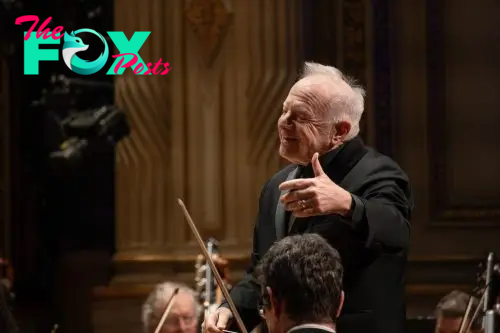
GN: Let’s transfer to the current. After your tenures as Music Director with many orchestras, you at the moment are solely doing visitor conducting?
LS: Six years in the past, I made a decision it was sufficient: I didn’t need to do administration anymore. The musical world has modified rather a lot in recent times, and my approach of operating an orchestra doesn’t actually jibe with the best way orchestras do enterprise at this time. Fairly totally different advertising and marketing and different methods have a tendency to control issues. I can now concentrate on some visitor conducting, composing and writing books. My fourth ebook, Eight Symphonic Masterworks of the Twentieth Century: A Examine Information for Conductors will likely be revealed by Rowman and Littlefield this 12 months. I nonetheless take pleasure in touring, each to the locations the place I conduct and, as a vacationer, normally to unique locations. Later this 12 months, I may also return to conduct the St. Louis and Detroit orchestras, in addition to the Nationwide Symphony in Washington, and make a visit to Japan. In March 2025, I’ll conduct the New York Philharmonic, that includes the New York premiere of John Corigliano’s Triathlon.
I don’t focus a lot on recording any extra. From my perspective, the CD in at this time’s world serves principally as a ‘enterprise card’ for classical artists and is especially about establishing private credentials. With the proliferation of recordings already on the market, nobody actually expects {that a} new recording of Beethoven’s Seventh by anybody will break new floor. I’ve been requested to file another items extra lately however declined. I’m not going to do the piece any higher or worse than someone else, so that you why would you want it from me?
GN: In your prior ebook, Classical Crossroads, you talk about issues that have to be overcome to maintain classical music for the long run. I do know it’s a broad query, however what do you suppose are the largest issues to unravel proper now.
LS: I want I had a crystal ball mentality, however probably the most fundamental problem is: the place are the audiences of this century going to return from? After 4 many years of phasing out music training in colleges within the US, now we have misplaced a significant group of homegrown concertgoers who would possibly substitute the present older attendees. Those that haven’t any familiarity with classical music when younger, or have by no means performed an instrument, won’t typically be concertgoers later. Luckily, this has not been true over the identical interval for Asian cultures or for Asian Individuals, the place most kids do obtain musical coaching whether or not they select to enter music or not. They’ve been very aggressive achievers: simply have a look at the proliferation of soloists and orchestral Gamers – and the viewers participation – from this group. So, elevated participation of numerous cultures appears to be a essential a part of the answer.
Clearly, attracting at this time’s youth to concert events has been a difficulty for a few years. Entry to concert events is one element. I keep in mind in Detroit after the strike, we provided college students a ‘sound card’ for simply $25 which allowed them entry for the total season of concert events. Immediately, the viewers began to look larger and really totally different than earlier than, youthful and extra numerous. This can be a commonplace technique now however important. Maybe a extra elementary problem is addressing the large gulf between younger listeners and the legacy of classical efficiency as we all know it. At the moment’s younger actually don’t know a lot about these you and I would regard as legendary performers. Nor will they mechanically discover out, given the bewildering mass of fabric on the net. There may be room for added training right here.
One other concern is restoring a way of ‘event’ to classical concert events. A long time in the past, a symphony’s season would possibly construct to a much-awaited finale of Beethoven’s Ninth Symphony or Mahler’s Second, however performing these works now appears commonplace. Even doing a Mahler symphony cycle appears routine, since so many conductors need to set these works down. There may be a lot room for innovation in offering musical themes and live performance designs that may construct the momentum of an orchestra’s season and draw concertgoers in for the long term.
One of the crucial fundamental points is how nicely the media communicates classical music happenings to the general public. For instance, we had two high quality newspapers in Detroit and two of the most effective critics. They have been great: educated they usually wrote nicely, however each newspapers let the critics go roughly on the identical time and haven’t changed them. It’s horrible, however there may be nothing stopping this tendency now. It’s as much as web sites like your personal to redress the steadiness and, fortuitously, there appears to be growing progress on this entrance.
With respect to American classical music particularly, there doesn’t appear to be a lot historic curiosity from at this time’s music administrators. I can virtually assure that you’ll not hear a symphony by Walter Piston, William Schuman or David Diamond in subsequent 12 months’s live performance seasons, as necessary and particular person as their works are. These at the moment are America’s ‘forgotten composers’. I’m at present attempting to reverse this pattern by introducing a variety of initiatives below the banner of the ‘American Sound Initiative’, which can encourage extra performances of those composers and convey forth extra American conductors too.
GN: As a concluding query, how hopeful are you about classical music’s future?
LS: I’m nonetheless very hopeful and, similar to in different troublesome durations for the humanities, we should place confidence in the numerous intelligent individuals in our society – and donors – to determine ingenious methods to maintain classical music and its audiences going. There isn’t any doubt we’re going to must have new and other ways of speaking to audiences, and a distinct perspective from musicians too. Musicians should acknowledge that it isn’t nearly taking part in their devices, it’s about how they convey musical experiences to their listeners and work together with their group. These dictates at the moment are a part of our career, and now we have to do that.
For myself, I’ll proceed to put in writing books, educate, visitor conduct and go to music colleges across the nation. I at all times do two weeks on the Manhattan Faculty in New York after which go to two or three different colleges simply because I need to get a sense of the place we’re with our coaching of the musicians who’re about to enter the skilled workforce. A really hopeful signal is the beautiful quantity of expertise I observe each time. Our position is to make sure there may be an viewers for it.
For a fuller model of this interview on Vancouver Classical Music click on right here.
-
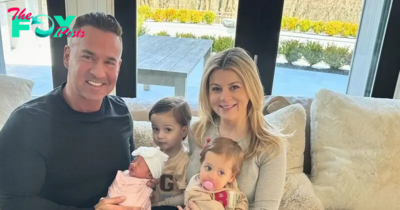
 Entertainment5h ago
Entertainment5h agoMike and Lauren Sorrentino Introduce Baby No. 3 to Kids in ‘Jersey Shore’ Exclusive Clip
-
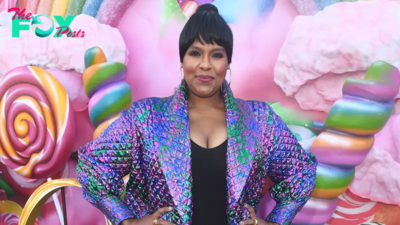
 Entertainment9h ago
Entertainment9h agoNatasha Rothwell on Her Memorable Firsts
-

 Entertainment14h ago
Entertainment14h agoFace Me and Other Korean Medical Crime Shows That are Must Watch
-
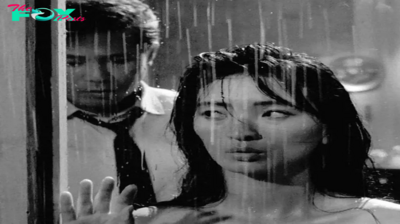
 Entertainment20h ago
Entertainment20h agoClassic Korean Movies Like Piagol to Add to Your Watch List
-
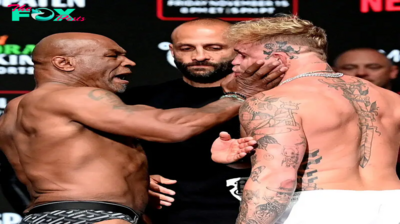
 Entertainment20h ago
Entertainment20h agoOver 60 Million People Tuned in to Watch Jake Paul vs. Mike Tyson
-

 Entertainment1d ago
Entertainment1d agoPopular Hudson Valley Italian Restaurant Addresses Closing Rumors
-

 Entertainment1d ago
Entertainment1d agoRHOBH’s Dorit Kemsley Addresses Viral Smoking Scene on Season 14 Premiere: ‘I Was Being Chased’
-
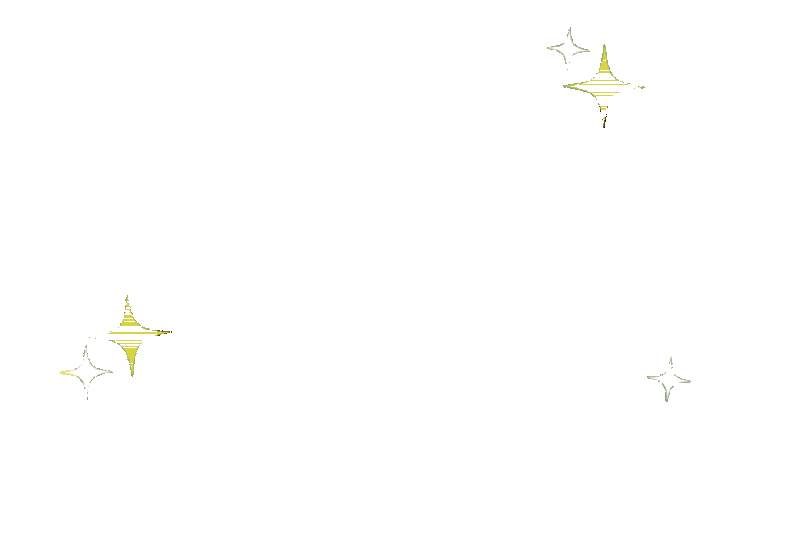
 Entertainment1d ago
Entertainment1d agoThe 10 Best Podcasts of 2024
